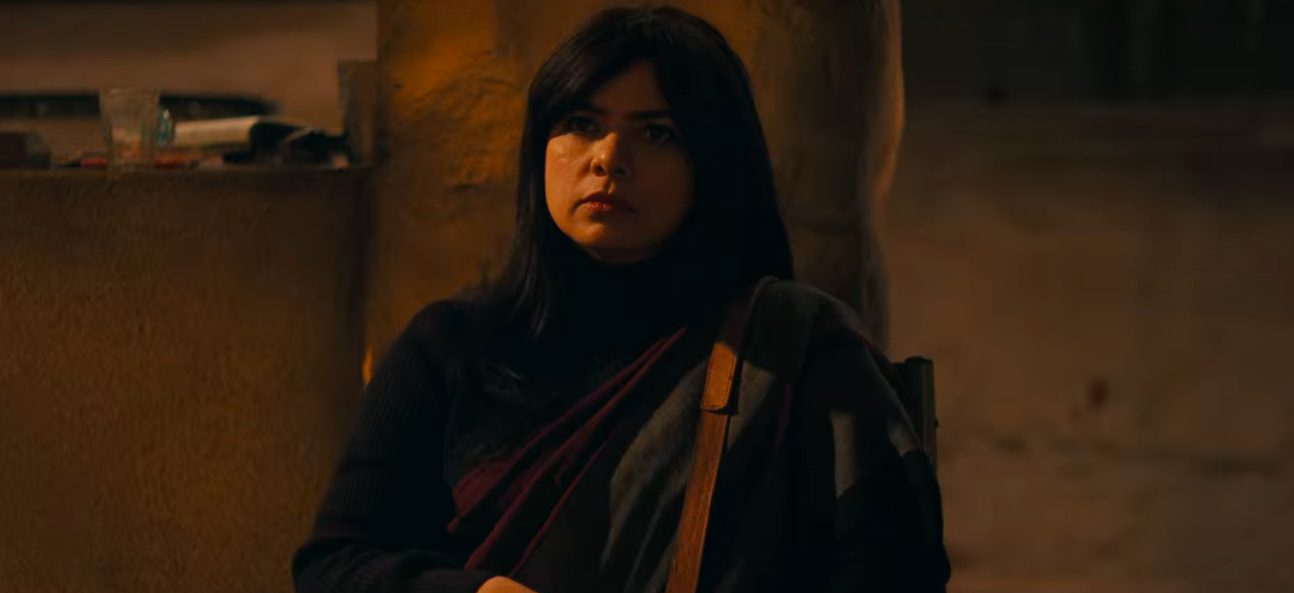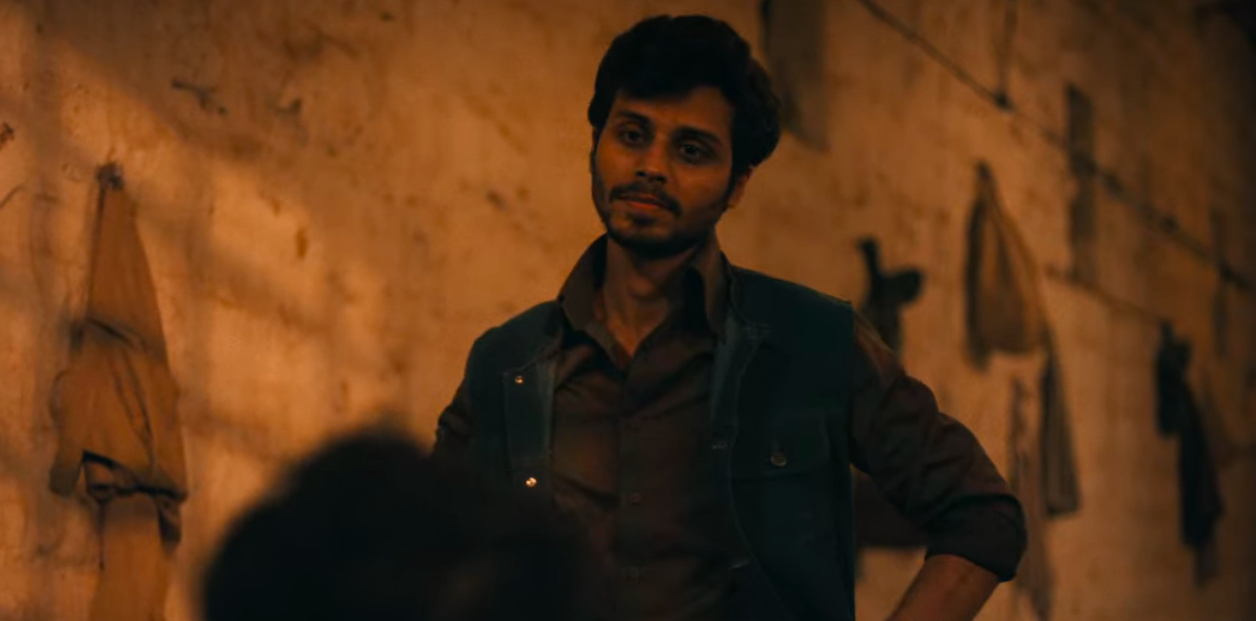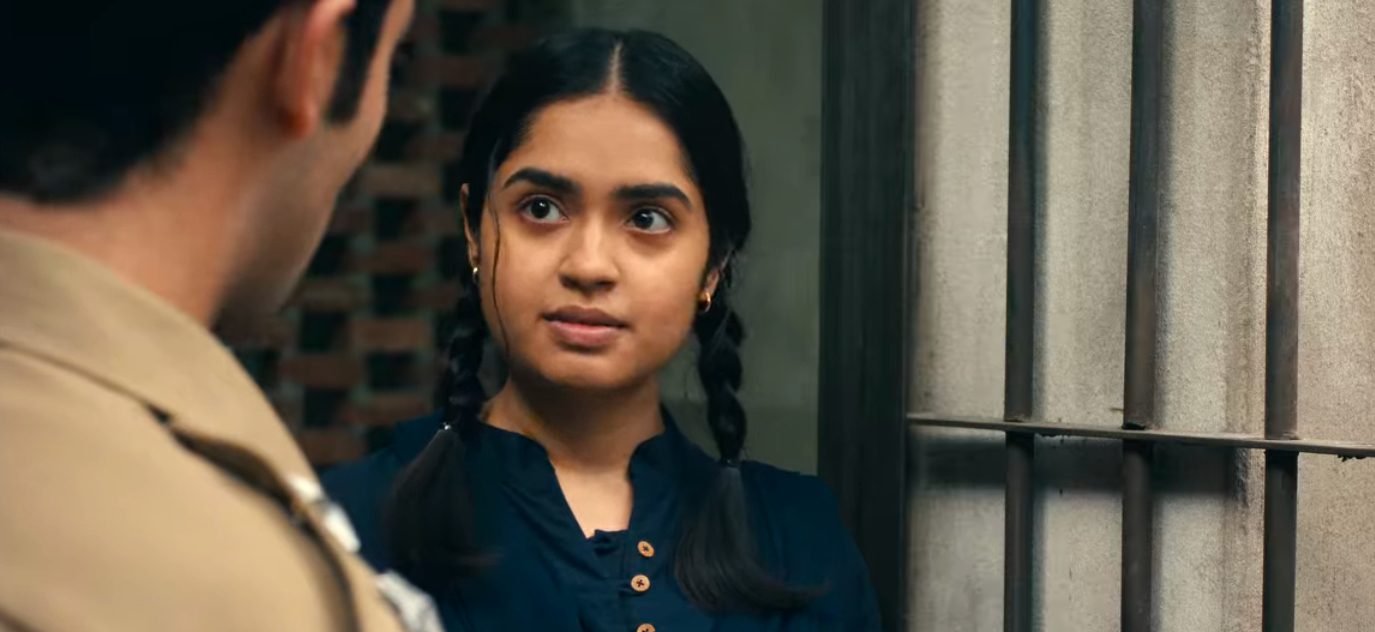Netflix’s ‘Black Warrant’ is a prison drama that takes the audience inside the Tihar jail, focusing on the lives of the inmates as well as the officers who maintain the entire system. While most of it is spent navigating the complicated dynamics, from the corruption and politics of the officials to the power plays and bloodshed caused by the several gangs, the story also focuses on the elements outside the prison and how they impact the ones on the inside. There are secondary characters that seem unimportant at first but have quite an impact on the overall plot line. Amongst these are people like the journalist Pratibha Sen, the prisoner Garvit Duggal, and the college student Kavita Soni. Like most of the things in the show, these three characters are also based on real people. SPOILERS AHEAD.
Pratibha Sen is Based on a Real Trailblazing Journalist

Pratibha Sen is introduced in the second episode of ‘Black Warrant,’ which focuses on the days surrounding the execution of Ranga and Billa. According to the prison’s policy, only family members, friends, and legal counsel are allowed to meet with the prisoners. However, Pratibha Sen petitions against it and, against all odds, secures an interview with Ranga and Billa, should they agree to talk to her. This mirrors what happened in real life as several journalists petitioned for the interview, and eventually, five of them were allowed to meet with the inmates. The one that Pratibha Sen most prominently draws from is Prabha Dutt.
At the time, Prabha Dutt worked for Hindustan Times and was the first one to file a petition for the interview. She was followed by several other journalists, including Usha Rai of The Times of India, who filed a petition of her own, and Prakash Patra of The National Herald, who wrote a petition to the Union home secretary, Delhi’s lieutenant governor, Delhi’s home secretary and the director-general of prisons for the interview as well as to be present at the hanging. Patra’s petition to witness the hanging was rejected, but he was allowed to be present for the interview with four other journalists. In the end, Billa spoke with them for about 20-25 minutes, but Ranga refused to talk.
Allowing the interview with the prisoners was a landmark decision made by the court at the time, and Prabha Dutt’s initiative and success in the matter further established her reputation as a reporter who could not be so easily dissuaded by hurdles. She was already a reputed journalist known for focusing on social issues and marginalized communities. She was India’s first woman war correspondent and reported from the frontlines of the 1965 India-Pakistan war. Dutt also interviewed the Beatles in 1966, among other things. Tragically, Prabha Dutt passed away on March 1, 1984, due to a brain hemorrhage. She was 40 years old at the time. In her name, the Prabha Dutt Fellowship in Journalism was established, which is granted every year to promising young women in journalism. Her legacy is also carried forward by her daughters, Barkha Dutt and Bahar Dutt, both of whom followed in their mother’s footsteps and are prominent journalists.
Garvit Duggal and Kavita Soni’s Story is Based on a Real Prison Romance
While stories set in prison are more often than not bleak and focus on crime, punishment, and pain, there are also more joyful moments that prove that happiness can be found anywhere. We see the same thing happening to Garvit Duggal, an inmate in Tihar who befriends Sunil Gupta and becomes the officer’s trusted source. Garvit is revealed to be a student from SGRR who is in prison for murder. However, he is also smart and intuitive, which is why, when Sunil finds Kavita Soni, a research student who is interested in writing about the prisoners in Tihar, he introduces her to Garvit. Slowly, a romance blossoms between the two, and despite Garvit being a murderer and a prisoner in Tihar, Kavita eventually accepts him.

Garvit and Kavita’s story seems to be right out of a Bollywood film, but in reality, it is borrowed from the pages of Sunil Gupta’s book, ‘Black Warrant: Confessions of a Tihar Jailer,’ which serves as the source material for the Netflix series. In his book, Gupta talks about several cases where a prisoner fell in love with someone outside of the prison. The story of Garvit is based on Gurdeep Bagga, aka Pinki. Bagga was arrested after he murdered a shop manager in a fight gone wrong while trying to get a gas cylinder. The scuffle between the two ended with Bagga stabbing and killing the man, which landed him a life sentence. He came to Tihar in 1980 and immediately established himself as one of the good ones.
According to Gupta, anyone who met Bagga could tell that he wasn’t a generally violent person. He just happened to be very unfortunate, and it was more about him being in the wrong place at the wrong time rather than being a hardened criminal who murdered someone in cold blood. Reportedly, the judge who sentenced him described the murder as an act of “utter desperation while deprived of self-control” while hoping that Bagga would receive clemency in the future. The woman who fell in love with him was a young woman pursuing her Master’s in social work. She came to Tihar as an intern for Sunil and was working on a research project on prison methodology.

The woman and Bagga fell in love, and their romance soared when things took a turn for the better. Bagga’s sentence was reduced from a life sentence to ten years. He was released from prison in 1987, and soon after, the couple got married. Sunil Gupta revealed that he was invited to their wedding, but he didn’t attend it due to his policy not to mingle with former inmates. However, he also revealed that he got in touch with Bagga years later on Facebook. It turns out that the man now runs a successful distillery business, travels a lot, and is still married to the woman he fell in love with in prison. A hint of this happy ending is given to Garvit and Kavita in the final episode of ‘Black Warrant,’ and adds a more hopeful tone to an otherwise dark story.
Read More: Black Warrant: Are Kartar and Ujagar Singh Based on Real Criminals?


You must be logged in to post a comment.